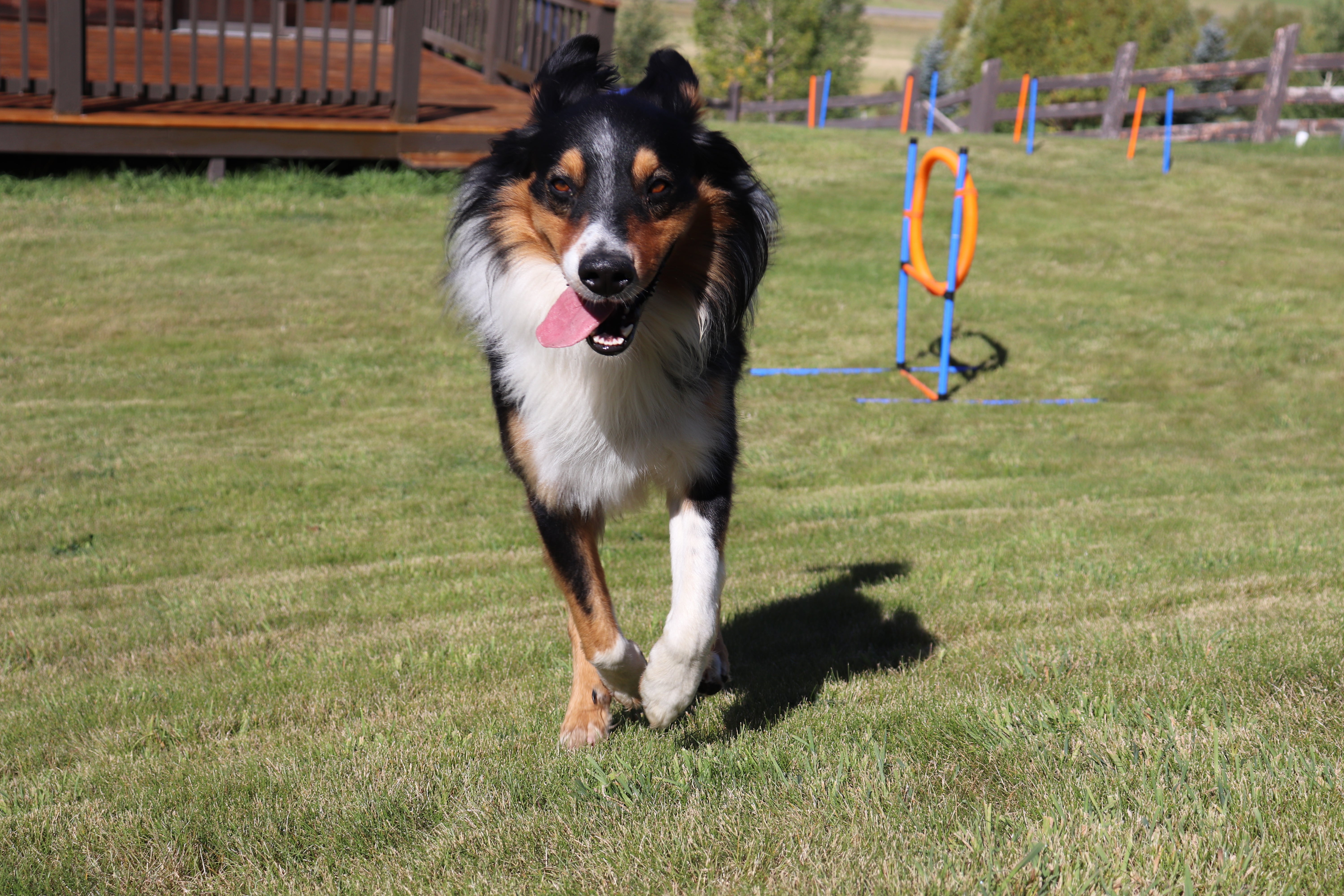English Shepherd
English Shepherds are American by breed, not British as their name might imply. They likely descended from English and Scottish dogs brought to the United States during colonial times. A versatile working breed, the English Shepherd is a medium dog that is bursting with agility and speed. They are determined and persistent as herders. Dependable, calm, and forthright, the English Shepherd also makes a good watchdog who is easy to train.
Breed characteristics carousel
Learn More
Need To Know
- Dog suitable for owners with some experience
- Extra training required
- Generally healthy breed
- Enjoys vigorous walks
- Medium dog
- Minimal drool
- Requires frequent grooming
- Chatty and vocal dog
- Barks and alerts to visitors/anything unusual
- Could have issues with unknown dogs but gets along with known dogs
- Gets along with other pets with training
- Great family dog
- Needs a large yard, preferably in rural areas

Personality
Brave yet steady, the English Shepherd is ready to go to work at a moment’s notice. They are alert and attentive, but can also be sensitive. They are highly intelligent and learn quickly, making training a breeze. They can be independent thinkers like most herding dogs, though, which means they might have a stubborn streak. They do well with owners who have consistent and firm yet gentle leadership.
The precursor dog to the English Shepherd likely goes back as far as Roman times, when dogs were brought to the British Isles to help herd livestock. The British who settled in America brought the dogs with them and they’ve been in the U.S. ever since, albeit a rarer breed than other shepherds.
Owners who understand what motivates a herding dog will do best with English Shepherd dogs. They need active owners who can match their high-energy needs and ones who can devote time to training them. They need lots of outdoor time. Owners of English Shepherds should invest in good jackets—they don’t mind bad weather and will want to go outside no matter what the forecast says.
Athletic and indefatigable, the English Shepherd enjoys walking, running, hiking, playing, and more, plus mental stimulation such as games, puzzles, and training. Once stimulated properly, they can be polite and well-mannered family dogs.
A fenced-in yard or lots of land to roam is the ideal situation for the English Shepherd dog. Inside, they are happy to be near their families.
English Shepherds do shed quite a bit, so regular brushing is advised to keep them healthy—and to keep your floors from being covered in dog hair.
Quick to learn and eager to do so, the English Shepherd has a high capacity for training. They will obey, but might also try to problem-solve on their own. They have strong opinions which might be at odds with those of their owners. Consistent, firm, and gentle training methods will help the dog respect their owners. Socialization can help them with confidence.
English Shepherds are good family dogs for families with experience in owning dogs, especially herding breeds. They do best with families with no children or older children who can participate in the dog’s training and exercise.
The cost of an English Shepherd from a breeder is significantly more than the cost of adopting one from a local shelter or rescue. The adoption fee usually covers additional items such as spaying or neutering, vaccines, and microchipping.

Learn more about feeding and caring for your English Shepherd on Purina.
Did You Know?
- English Shepherds are American dogs, despite the name. They likely came from Scottish and English shepherd dogs brought over to America during Colonial times.
